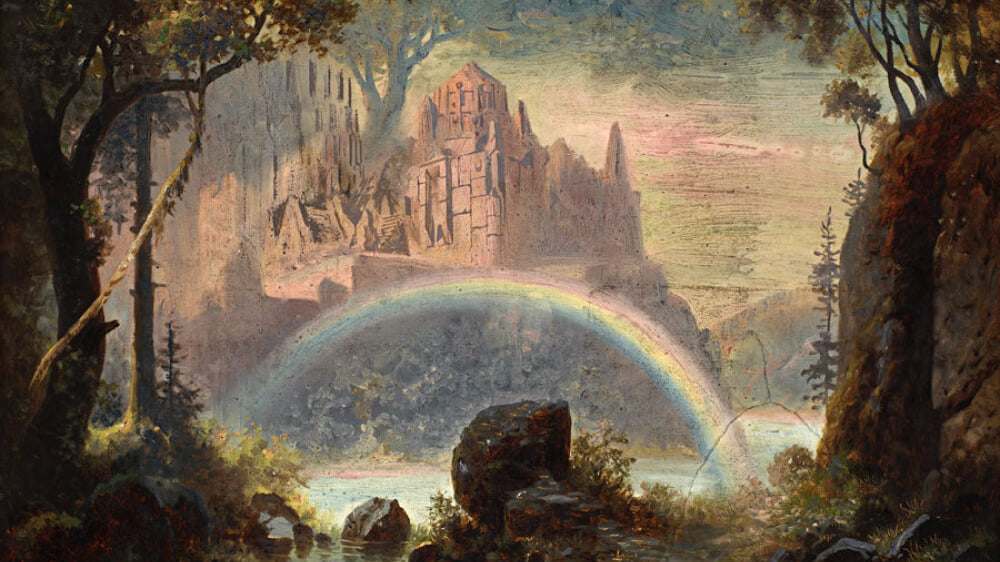Listen to the cosmic, elemental opening of Wagner’s Das Rheingold, and you may be reminded of contemporary music, from the atmospheric soundscapes of John Luther Adams, to the minimalist arpeggios of Philip Glass.
Beginning as a low rumble in the depths of the orchestra, the Prelude to Das Rheingold features a pure E-flat major chord which continues for over four minutes. It is an epic celebration of the eternal flow of the Rhine River, and the creative force of nature. Wagner claimed that the music came to him in a dream:
The rush and roar soon took musical shape within my brain as the chord of E-flat major, surging incessantly in broken chords: These declared themselves as melodic figurations of increasing motion, yet the pure triad of E-flat major never changed. … I awoke from my half-sleep in terror, feeling as though the waves were now rushing high above my head.
Composed in 1854, Das Rheingold is the first opera in Wagner’s “Ring” Cycle. It begins in the dark, watery realm of the mythic Rhinemaidens, and moves upwards to the land of gods and giants. A ring, forged from the magic Rhinegold and coveted by Wotan, leads to curses, treachery, and enslavement. In the opera’s final scene, the Rhinemaidens lament the loss of their gold, while the gods cross a “Rainbow Bridge” to their new home, Valhalla, walking to their eventual doom.
In the final moments, amid a flood of leitmotifs, the primordial music of the opening prelude remains as a powerful undercurrent.
Here are two classic performances:
Metropolitan Opera, James Levine (1990)
The cast includes James Morris (Wotan) Siegfried Jerusalem (Loge), and Christa Ludwig (Fricka).
Chicago Symphony Orchestra, Georg Solti (Live Broadcast from Symphony Hall in April of 1983)
The cast is listed in the closing credits. A few weeks later, the performance was repeated to great acclaim at Carnegie Hall.
Recordings
- Wagner: Das Rheingold, James Levine, 1990 Metropolitan Opera Production Amazon
Featured Image: “design for the 1878 staging of “Das Rheingold” by Richard Wagner,” Hermann Burghart

